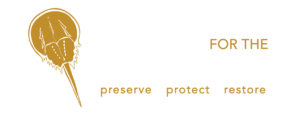Study to Restore Passage for Migratory Fish on the Agenda of Next CIB Science Meeting
The spring migration of shad, herring and eel was once a harbinger of the season on rivers and creeks of the Inland Bays, but spawning runs have drastically declined. The construction of dams on our waterways to supply power to mills prevented these species from reaching their spawning grounds upstream of the dams. The mills are long gone, but the dams remain.
At the next meeting of the Delaware Center for the Inland Bays Science and Technical Advisory Committee, Roy Miller, Policy Coordinator at the CIB will give the results of a CIB study to evaluate and prioritize opportunities to restore fish passage on tributaries of the Inland Bays.
The public is invited to attend the meeting on Friday, December 5th from 9 a.m.-12 noon at DNREC’s Lewes Field Facility at 901 Pilottown Road in Lewes by the public boat ramp.
Also on the agenda, Irrigating Agricultural Crops with Treated Municipal Wastewater: Review of a Three Year Study and New Regulations in Delaware. Legislation enacted in Delaware in 2009 gave farmers the right to receive and recycle municipal wastewater forirrigating agricultural lands. Dr. James Glancy, Professor of Bioresources Engineering & Mechanical Engineering at the University of Delaware will present the findings of this study.
The third presentation will demonstrate the results of an evaluation of the impacts of sea level rise of groundwater resources in the Delaware Coastal Plain by Thomas E. McKenna of the Delaware Geological Survey and Changming He of the University of Delaware.

The Delaware Center for the Inland Bays is a non-profit organization established in 1994 to promote the wise use and enhancement of the Inland Bays and its watershed. With its many partners, the CIB conducts public outreach and education, develops and implements restoration projects, encourages scientific inquiry, and sponsors research. For more information, or to learn how you can support this important work call visit our website at www.inlandbays.org
